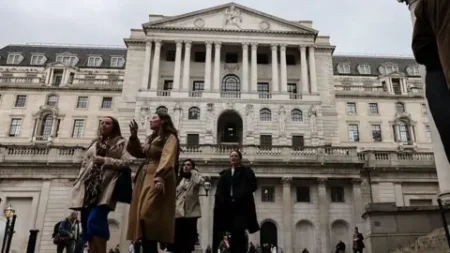An investigation into the circumstances surrounding the tragic events in Southport has revealed that the Prevent counter-terrorism program failed to adequately address the signs that could have led to intervention in the life of the perpetrator, Axel Rudakubana. This conclusion emerged from a significant review led by Lord David Anderson KC, highlighting the urgent need for reform in how agencies respond to potential threats.
According to the review, Rudakubana exhibited a dangerous obsession with violence, yet three alarmed teachers flagged his behavior to Prevent officials on separate occasions between 2019 and 2021. Unfortunately, each time the case was closed due to the absence of an identifiable terrorist motive. This oversight raises critical questions about the existing protocols within the Prevent program, which was designed to identify and redirect individuals who exhibit tendencies towards radicalization, but seems to have failed in this high-profile instance. The implications of this failure are profound, especially given that Rudakubana went on to commit heinous acts, claiming the lives of three young girls and injuring several others at a community event.
The review also pointed to systemic flaws within the Prevent program and called attention to similar shortcomings observed in a separate case involving Ali Harbi Ali, who murdered MP Sir David Amess. In Ali’s case, a mentor was sent to engage with him based on previous concerns; however, this engagement was limited to only one meeting, raising doubts about the effectiveness of the mentoring system and the overarching strategy in place to intercept ideologically dangerous individuals. Lord Anderson noted that both cases illustrate a shocking lack of awareness and action by those responsible for managing individuals deemed potentially harmful.
Lord Anderson’s review advocates for the Prevent program to expand its scope beyond individuals with defined ideological motivations. He emphasized the importance of focusing on those with a fixation on violence, regardless of their stated beliefs. In instances where individuals, like Rudakubana, do not demonstrate a fixed ideology but display tendencies towards violent behavior, it is essential that systems like Prevent adapt to address these complex cases. This calls for serious reassessment and possible restructuring of how authorities evaluate and treat potential threats, particularly in regards to online radicalization, which has become increasingly prevalent.
The report points towards the need for proactive monitoring of public social media activity, with Lord Anderson underscoring that many opportunities exist to engage individuals before they escalate into violence. This includes identifying troubling online behavior among youths in educational settings, which can offer imminent warning signs.
While Rudakubana has been sentenced to life imprisonment, questions linger over how the system could have responded differently to save innocent lives. Lord Anderson’s strong declarations suggest that Prevent must “up its game,” integrating more robust measures to pinpoint and address troubling behavior early. He articulated the need for mentorship and intervention programs within schools, underscoring that while not all interventions lead to positive outcomes, having the right support and guidance available might redirect individuals like Rudakubana away from paths that end in violence.
In response to the review’s findings, Home Secretary Yvette Cooper expressed the government’s commitment to implementing changes to avoid such failures in the future. She acknowledged that front-line workers must receive clearer guidance about their responsibilities in referring individuals who display violent tendencies to the Prevent program. Cooper’s assurances suggest a renewed focus on coordination between government, law enforcement, and educational institutions to better prevent future tragedies from occurring, underlining the necessity of learning from past errors and rooting out systemic inefficiencies within counter-terrorism strategies.
As the community grapples with the sorrow of the Southport tragedy, the hope is that procedural reforms will not only honor the memory of those lost but will also protect future generations by ensuring that similar opportunities for intervention are not missed again.











